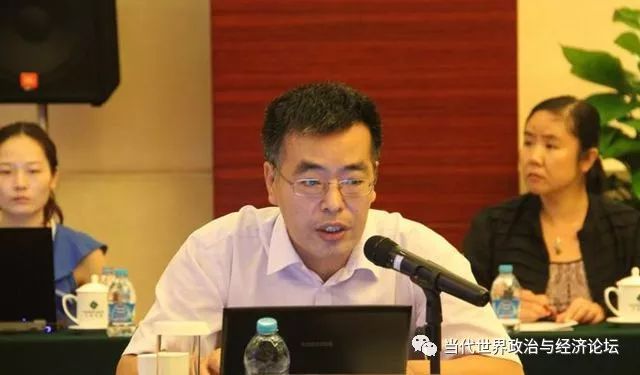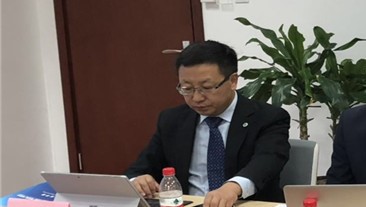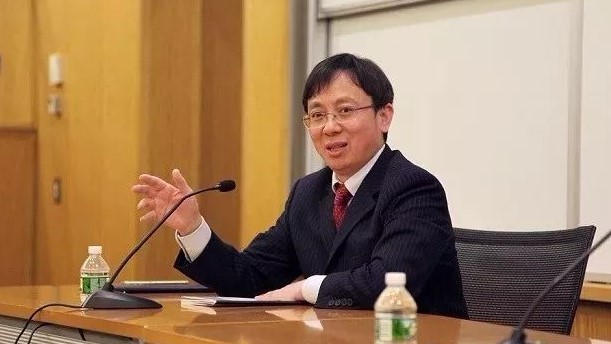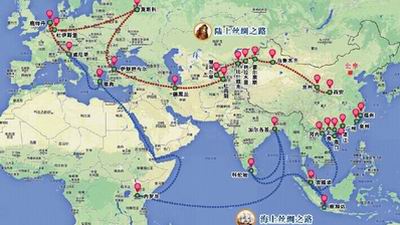“一带一路”计量合作愿景与行动
中华人民共和国国家质量监督检验检疫总局
两千多年前,我们的祖先共同开辟了贯通亚欧的陆上和海上丝绸之路,架起了东西方友好往来的桥梁,成为沟通东方与西方之间经济、政治、文化和思想的大动脉。
千百年来,古老的丝绸之路这条历史纽带,镌刻着沿线各国人民风雨同舟、守望相助的不朽记忆;承载着“和平合作、开放包容、互学互鉴、互利共赢”的丝路精神,是沿线各国人民的共同精神财富。丝绸之路精神薪火相传,历久弥新,促进了不同民族和文化的交汇融合,推动了不同国家和地区的互通有无,为亚欧大陆的繁荣发展,做出了特殊而重要的贡献。
纵观历史,1875年,17个国家的代表在法国巴黎签署政府间协议“米制公约”,成立米制公约组织,为实现测量单位全球统一搭建了永久性的国际框架。伴随着社会的不断发展,计量作为社会治理的重要手段,经济发展的根基,公平贸易的基础和科技进步的支撑,为全球贸易和经济社会可持续发展发挥了重要的作用。
在中国政府高度重视和社会各方大力推动下,中国的计量体系得到不断完善与发展。当前,计量已经成为国家技术质量基础的重要组成部分,成为中国与世界各国紧密联系、传递信任、共同进步的桥梁纽带。尊重各国历史文化,尊重各方利益诉求,尊重各自资源禀赋差异,与世界各国共同推动国际计量体系的创新发展,既是社会发展的根本需求,也是面向未来的共同愿景。
2015年3月,中国政府授权发布《推动共建丝绸之路经济带和21世纪海上丝绸之路的愿景与行动》,提出了中国和沿线各国共建“一带一路”的合作倡议,明确将计量作为合作重点,既体现了计量的重要基础地位,也体现了互利共赢的共同需要,为深化中国与沿线国家计量合作提供了路径指引。
为推动“一带一路”沿线国家在计量领域开展更大范围、更高水平、更深层次的务实合作,国家质量监督检验检疫总局倡议并发布《“一带一路”计量合作愿景与行动》。
一、总体思路
秉持平等、共商、共建、共享、互利共赢的理念,遵循国际通行规则,立足各国国情实际,在平等协商、兼顾各方利益的基础上,积极推进与沿线国家计量领域全方位务实合作,共同促进国际计量体系的创新发展,共同推动国际计量互认进程,共同促进贸易便利化水平,共同服务区域经济社会可持续发展。
二、基本原则
开放合作。倡议各国政府计量主管部门、计量机构、计量利益相关方、社会公众以及国际区域性组织广泛参与,共同推动计量国际合作向着更加开放、更加包容、更加互惠方向发展。
互学互鉴。鼓励各国相互学习和借鉴在计量领域的先进管理经验、计量科学技术和计量发展成果,优势互补,博取众长,增进互信,共同发展。
互利共赢。尊重各国计量体系的差异性,综合考虑各国合作需求和利益诉求,在相互沟通、相互协商的基础上,寻求基于各方利益最大化的合作途径,促进合作成果惠及各国人民。
三、合作重点
(一)加强计量政策沟通。
加强各国政府主管部门计量领域合作,积极构建多层次政府间计量政策沟通交流机制,加强在相关国际事务中的磋商和协调,增进相互了解和信任,达成合作新共识。建立计量领域信息互换和交流机制,提升计量法规透明度,实现沿线国家资源共享。
中方将不断提高计量政策的透明度,利用双边、多边机制,让国际社会及时、准确、充分了解中国计量政策和工作动态。中国愿与沿线各国共同建立计量信息共享和快速查询平台,相互通报证书、机构、人员和监管信息。
(二)推进计量国际互认。
加快计量双边、多边互认进程,促进计量器具型式评价结果的国际互认,促进量值国际等效。共同开展国别制度研究、计量比对、国际同行评审等活动,增进计量实验室能力的相互信任,促进计量互认,消除贸易壁垒。
中方将积极参与国际计量互认安排制度建设,积极发挥双边机制的作用,根据各国需求,寻求双方共同契合点,不断扩大互认国和互认产品范围,最终实现“一次测试、一张证书、全球互认”。
(三)加强各国计量技术交流。
加强各国计量技术机构,特别是国家计量院间在战略规划、科学研究、业务拓展等方面的信息交流,建立有效合作机制,开展联合研究、双多边比对等实质性合作;强化人员交流,互派访问学者;分享先进科技成果,利用先进技术提高国家测量能力,共同提升科技创新能力。
中方将积极创造条件,促进科技人员交流,为发展中国家计量技术机构提供技术培训和检定校准测试服务,培养技术骨干,支持能力建设和开展技术转移。
(四)提升计量服务能力。
从各国发展需求出发,共同推动计量与产业的深度融合,提高计量测试水平,提升计量服务经济和贸易发展的能力。共同加强在新一代生物、新能源、新材料等新兴产业领域的深入合作,推进共同开展重大科技攻关,破解计量难题;共同适应产业变革趋势,加强各国在计量领域计量标准的合作研发;鼓励各国计量机构提供内容广泛的计量测试服务和互援互助,推动各国计量技术基础设施的共建共享。
中方愿意为沿线各国提供更多的计量交流和培训机会,为各国提升计量能力建设提供帮助;倡议各国加强计量测试技术合作,共同提升计量服务产业和经济发展的能力。
四、合作机制
建立并完善双边合作机制。充分利用现有双边机制,建立多层次、多渠道沟通磋商,推动双边计量合作关系全面发展。中方愿与有关国家加强现有双边机制下的计量合作,落实既有合作成果,推动签署合作备忘录或合作规划,共同协调推动合作项目的实施。
完善多边合作机制。充分发挥多边合作机制作用,推动各国政府间开展计量合作对话,倡导各国积极参与区域计量组织活动,参与多边国际互认安排,反映各方计量诉求,共同构建国际计量合作体系。中方愿意在国际和区域组织中发挥更积极的作用,开展对发展中国家计量援助,促进各国计量事业共同发展。
加强行业和地方层面合作。积极发挥行业、学会和计量相关方参与国际合作的积极性。在各种多双边合作安排中充分吸收各相关机构参与。中方将积极鼓励地方部门参与双多边合作,在整体合作框架下开展对等合作交流,发挥区位、地缘优势促进区域合作发展。
中华人民共和国国家质量监督检验检疫总局愿与沿线各国一道,以共建“一带一路”为契机,继承和发扬丝绸之路精神,不断充实完善计量领域合作内容和方式,促进计量领域的互信互认,共同推动沿线国家发展,让沿线各国人民共享“一带一路”共建成果。
“The Belt and Road” Vision and Actions for Cooperation in Metrology General Administration of Quality Supervision, Inspection and Quarantine of the People’s Republic of China
More than two millennia ago, thanks to the concerted efforts of our ancestors, a silk road connecting Asia and Europe through land and sea was successfully built, serving as a bridge between the East and West for interactions and as a major route for economic, political, cultural and ideological activities between the two continents.
For centuries, the ancient Silk Road, a link of historical importance, has witnessed countless unforgettable moments of people going through thick and thin in countries along the route. Symbolizing a spirit of "peaceful cooperation, openness, inclusiveness, mutual learning, mutual benefit and all-win", the road has become a common spiritual wealth of the peoples of countries along the Belt and Road. Passed from generation to generation, the timeless spirit of the Silk Road has been instrumental in promoting the integration of different peoples and cultures and in facilitating exchanges between different countries and regions and thus has made unique and substantive contributions to the prosperity and development of Asia and Europe.
In 1875, representatives of 17 countries signed the intergovernmental agreement, the Metre Convention in Paris, France and founded organizations under this treaty, establishing a permanent international framework for realizing the global unification of measurement units. With the constant development of society, metrology, as an important means of social governance, lays the groundwork for economic development, serves as a foundation for fair trade, supports technological progress, has play a significant role in global trade and sustainable economic as well as social development.
With great attention being given by the Chinese government and tremendous support from all sectors of society, Chinese metrological system is continuously being improved and developed. Presently, metrology has become as an integral part of National Quality Infrastructure, serving as a link connecting China and other countries in the world, making it possible to build trust and achieve common progress. To promote the innovation and development of an international metrological system on the basis of respecting countries’ differences in history and culture, national interests and natural resource endowment, accords with not only the fundamental needs of social development but also our common vision for the future.
In March 2015, the Chinese Government authorized the promulgation of “Vision and Actions on Jointly Building Silk Road Economic Belt and 21st-Century Maritime Silk Road”, which puts forward the cooperation initiative of building “The Belt and Road” by China and countries along the Belt and Road and explicitly makes metrology as a key area of cooperation. This not only demonstrates the vital and fundamental status of metrology, but also embodies our common need for mutual benefit, providing guidelines for deepening the cooperation in metrology between China and countries along the Belt and Road.
In order to promote pragmatic cooperation in metrology with countries along the Belt and Road in a larger scope, with higher standards and at deeper levels, the General Administration of Quality Supervision, Inspection and Quarantine of the People’s Republic of China has initiated and published “The Belt and Road” Vision and Actions for Cooperation in Metrology.
I. General ideas
Championing the ideas of equality, extensive consultation, joint contribution, sharing benefits and all-win while abiding by international norms, based on the reality of each country and through equal-footed consultation, we should actively push forward with all-around pragmatic cooperation with countries along the Belt and Road and give consideration to the interests and aspirations of all parties. With combined efforts, we should promote the innovation and development of an international metrological system, encourage international mutual recognition for metrology, facilitate trade liberalization and contribute to the sustainable development of regional economies and societies.
II. Basic principles
Opening-up and cooperation. We should call for the broad participation of the competent metrological departments of each government, metrological institutions, stakeholders in metrology, the general public as well as international and regional organizations in order to steer the international cooperation in metrology in the direction of increased openness, inclusiveness and mutual benefits Mutual learning. We should encourage countries to learn from each other in terms of their experience in advanced metrological management, metrological science and technology and achievements in metrological development so as to complement each other, enhance mutual trust and realize common progress.
Mutual benefit and all-win. While respecting the variances in the metrological regulations of each country and giving comprehensive consideration to the collaboration needs and national interests of countries along the Belt and Road, on the basis of mutual communication and mutual agreement, we should seek cooperation methods to maximize the benefits of all the parties and endeavor to have the achievements of the cooperation benefit all the peoples.
III. Cooperation priorities
(I) Enhancing the communication and exchanges for metrological policies.
We should promote intergovernmental cooperation between competent departments in the field of metrology, build a multi-level intergovernmental metrological policy exchange and communication mechanism, strengthen consultation and coordination regarding relevant international affairs, enhance mutual understanding and trust, and reach new cooperation consensus. We should work toward building an information exchange and communication mechanism for the metrological field, enhancing the transparency of metrological regulations and realizing resource sharing among countries along the Belt and Road.
China will continue to improve the transparency of its metrological policies and avail itself of bilateral and multilateral mechanisms in order for the international community to be informed of China’s policies and updates regarding metrology in a timely, accurate and sufficient fashion. China is ready to work together with countries along the Belt and Road to build a platform for the sharing and quick retrieval of metrological information and to notify each other of information on certificates, organizations, personnel and supervision.
(II) Promoting international mutual recognition for metrology.
We should accelerate the process of bilateral and multilateral mutual recognitions for metrology, facilitate international mutual recognition of type evaluation results of metrological instruments and contribute to international metrological equivalence. We should jointly carry out the study on metrological systems of different countries, metrological comparison and international peer reviews so as to boost our mutual confidence in the capabilities of our metrological laboratories, facilitate mutual metrology recognition and remove trade barriers.
China will play an active role in establishing a mechanism for the arrangements of international mutual recognition for metrology, utilizing the positive effects of bilateral mechanisms, seeking converging interests between the parties based on the needs of each country, and constantly expanding the scope of mutually recognizing countries and mutually recognized products, with the final goal of realizing “one test, one certificate, accepted everywhere”
(III) Enhancing technological exchanges about metrology between countries.
We should enhance information exchange between countries’ institutions for metrological technology, especially national metrology institutes, in terms of strategic planning, scientific research and business development. We should establish effective cooperation mechanisms and conduct substantive cooperation efforts such as joint research and bilateral and multilateral comparisons. Personal exchange will be increased with reciprocal dispatch of visiting scholars. Advanced scientific and technological achievements will be shared. We should utilize state-of-the-art technologies to boost our national measurement capabilities and also work together to improve our sci-tech innovation capabilities.
China will create positive conditions to promote sci-tech personnel exchanges, offer technical training and verification and calibration services to the institutions for metrological technology of developing countries, help them with the training of technicians, support their capacity building and carry out technology transfer.
(IV) Increasing the capacity of metrological services.
All countries, based on their own development needs, should jointly deepen the integration of metrology and industries, improve metrological testing and enhance metrology’s capability to serve economic and trade development. With joint efforts, we should strengthen our in-depth cooperation in emerging industries such as new-generation biology, new energy, and new materials, tackle key scientific and technological problems and address critical metrological issues. We should adapt ourselves to trends in industrial transformation, step up our efforts in collaborative research and development regarding national metrological standards, encourage all national metrological institutions to provide wide-ranging metrological testing services and mutual aid, and devote joint contributions to and facilitate the sharing of all national metrology technology infrastructures.
China is ready to offer more metrological exchanges, consultation and training to countries along the Belt and Road and assist them in building enhanced metrological capacities. China calls on all the countries to deepen their cooperation in metrological testing technologies and work together to increase their capabilities to develop the metrological service industry and economy.
IV. Cooperation mechanisms
Establishing and perfecting bilateral cooperation mechanisms. We should make full use of the existing bilateral mechanisms, carry out multi-level and multi-channel communication and consultation, so as to boost comprehensive development of bilateral cooperation in metrology. China is ready to work with other countries to strengthen cooperation in metrology under the existing bilateral mechanisms, implement the outcomes of our previous cooperation, facilitate the signing of cooperation MoUs or plans, and coordinate and promote the implementation of cooperation projects.
Improving multilateral cooperation mechanisms. We should give full play to multilateral cooperation mechanisms, promote cooperation and dialogue on metrology among governments, call on countries to actively participate in activities by regional metrological organizations and in multilateral arrangements for international mutual recognition, fully consider the metrological demands of all parties and build an international cooperation system for metrology. China is ready to play a more active role in international and regional organizations and provide metrological aid to developing countries, with the aim of achieving common progress in the metrological undertakings of all countries.
Strengthening cooperation at industrial and local levels. The initiatives of industries, academies and relevant metrological parties should be brought into full play to participate in international cooperation. Under various arrangements of bilateral and multilateral cooperation, active efforts should be made to attract the participation of all relevant institutions. China will actively encourage local authorities to participate in bilateral and multilateral cooperation, conduct equal-footed cooperation and exchange within an overall cooperation framework, and utilize their locational and geographical advantage to promote regional cooperation and development.
The General Administration of Quality Supervision, Inspection and Quarantine of the People’s Republic of China is ready to work with countries along the Belt and Road to seize the opportunity provided by the Initiative, inherit and carry forward the Silk Road spirit, continue to improve the content and methods of our metrological cooperation and promote mutual trust and mutual recognition in the field of metrology, with the aim of driving the development of the said countries and bringing the benefits of the Initiative to their peoples.






